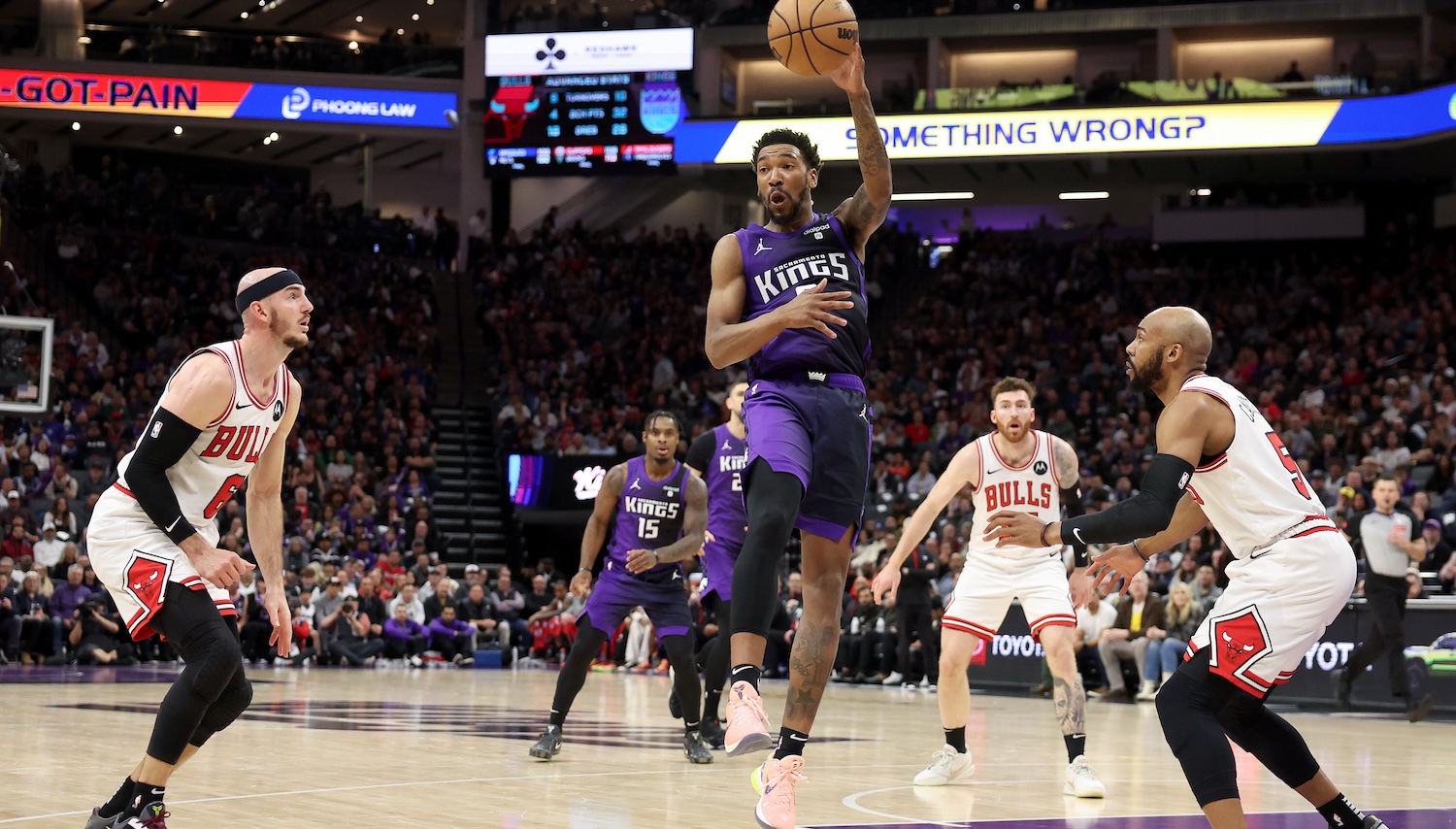My favorite part of high-level basketball is passing, which is less the connective tissue of a modern offense and more its circulatory system, a necessary precondition for a healthy attack. Fans are lucky enough to watch brilliant individual passers like Tyrese Haliburton and hiveminded collective passing units like the Thunder every night. Passing has never been more important than now, with basically every team playing a lot of five-out, yet the primary statistical measuring stick we have for passing, the assist, remains a frustratingly subjective one. A rebound or a made three-pointer is a discrete, inarguably real event, where an assist could be anything from a spectacular no-look pass to an innocent dribble-handoff a full six seconds before a teammate beats someone one-on-one.
The NBA defines an assist as such: "An assist is credited to the player tossing the last pass leading directly to a made field goal, but only if the player scoring the goal demonstrates an immediate reaction toward the basket after receiving the pass." Assists per game and per possession have ticked up along with every other major stat: One decade ago, teams averaged 22 assists per game, 4.7 fewer than the current average. It's up to official scorekeepers to make rulings, making the stat susceptible to home cooking.
And assists often were cooked. In 2009, Tommy Craggs scored an interview with the former Vancouver Grizzlies' scorekeeper Alex Rucker, who said he often assigned phantom assists to create gaudier statlines so the team could get on SportsCenter. Tom Haberstroh interviewed Rucker last week for Pablo Torre's show, and Rucker said of his role, "Yes, we are supposed to create the most accurate representation we can, but the NBA is also an entertainment business and it's up to us, in very small part as statisticians, to reinforce stars, excitement, and fun. And that message was definitely reinforced internally within the Grizzlies." (Interestingly, blocks are far more prone to meddling than assists.) He also said he watches and enjoys the modern NBA and thinks assists are "north of 95 [percent accurate] now."
So we decided to check. A quartet of Defector basketball enthusiasts watched each of the 317 assists that were recorded in Monday night's six-game spread, flagging them as either real, fake, needs further review, or passaggio, a special fourth category reserved for the tastiest of passes. Our results are as follows.

The four people who tracked the six games labeled 20 percent of last night's assists (63 total) as fake. Giri was the harshest critic; I was the most lenient. There were 16 passaggios, with the Jazz leading the way with three. Interestingly, road teams had a slightly higher fake-assist rate (24 percent) than home teams (16 percent), with the Grizzlies the largest beneficiaries of a plus-five differential in their win in Brooklyn. Here are some of the funniest fake assists of the night, one from each game.
Nets-Grizzlies: Luke Kennard
Blazers-Wolves: Ashton Hagans
Clippers-Bucks: Kawhi Leonard
Wizards-Jazz: Marvin Bagley III
Bulls-Kings: Alex Caruso
(Ed. note: The NBA should relegate, or better yet disband, the Kings.)
Thunder-Lakers: Jaxson Hayes
The point of this exercise was not to excoriate scorekeepers for creating fake numbers or hold them to account for their statistical crimes, but merely to get a vertical slice of what a couple hundred assists look and feel like. The very nature of the assist is subjective, so all of our conclusions amount not so much to fact-checking, but rather to art criticism. Giri, for example, labeled six plays as needing further review, and when I looked at them, I saw six assists. We also noticed a great many plays that featured assist-worthy passes that never ended up in the box score; for example, Sean noted this great Dennis Smith Jr. entry pass to Nic Claxton, who was fouled and split a pair of free throws. Would the most fair tally of that pass result in Smith Jr. getting one assist? Zero? One half? I'd hear arguments for each.
The plurality of assists were fairly simple swing passes for three-pointers, which are not necessarily transformative, yet are key parts of running a spread-out offense. The player making the last pass is credited with the assist, which makes sense as they are passing it to a player to capitalize on an advantage, even if the final pass in many of these scenarios is several nodes downstream of the creation of said advantage. The hardest assists to give rulings on were dribble handoffs. Someone like Domantas Sabonis gets a ton of his 8.4 assists per game on DHO actions, including two last night, and though he's essentially just dropping the ball and obliterating a defender with a bone-rattling screen, he is creating an advantage.
That sort of uncertainty pervades this exercise, and while perhaps scorekeepers err on the side of overcrediting players with assists, their jobs aren't easy because of how open to interpretation the assist is. There should be a single stat to measure passing, I think, since nobody wants to rattle off a player's scoring numbers alongside their DHO assists, passaggios per 36, and swing assists, yet the one we have now is imprecise. Ultimately, that's fine by me, as the messiness of the assist shows the limits of how thoroughly a basketball game can be quantified.
Additional reporting by Sean Kuhn, Chris Thompson, and Giri Nathan.






